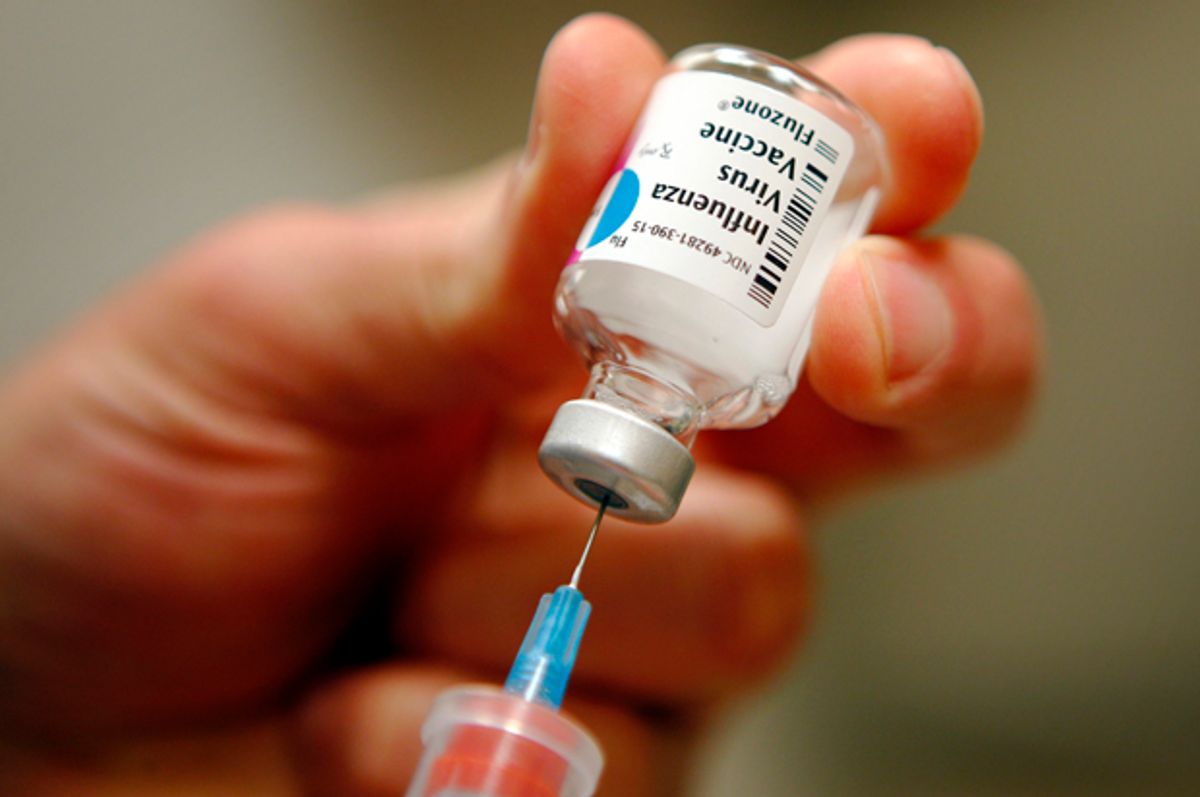New research published in the journal Pediatrics finds that families that choose not to vaccinate or undervaccinate their children tend to cluster together, creating small pockets of communities vulnerable to preventable diseases. The study examined medical data from 154,424 children born between 2000 and 2011, and found that the rate of under-immunization rose from 8.1 percent from 2002-2005 to 12.4 percent from 2010-2012. That is not a good trend.
"We now have the opportunity to use really sophisticated methods to identify these kinds of clusters of undervaccination or vaccine refusal," said Dr. Tracy Lieu, lead author of the study and Director of the Kaiser Permanente Division of Research. "With tools like these we have much more power and ability to identify emerging issues than anyone would have 20 or 30 years ago."
The L.A. Times' Eryn Brown reports on the findings:
Higher percentages of residents with graduate degrees increased a neighborhood's odds of under-immunization -- but so did higher percentages of households with incomes below the poverty line.
A number of factors may have been at work, Lieu said. People in highly educated communities may actively opt out of vaccines, believing that immunizations may cause autism or that administering too many at once might overwhelm children's immune systems, despite evidence to the contrary.
Residents of lower-income communities may instead miss doses because it is harder for them to get their kids to medical appointments and comply with the immunization schedule.
Recently, nine people contracted measles in California's Disneyland -- a disease that is easily preventable with a vaccine. But there has been a recent uptick in infections, due to widely-believed, untrue conspiracies about vaccinations. One patient who lives in Orange County, Calif. has infected 51 additional people.
"Vaccine refusal is kind of like politics -- it's all local," said Dan Salmon, deputy director of the Institute for Vaccine Safety at the Johns Hopkins Bloomberg School of Public Health. "It doesn't matter how low the refusal rate is in the state. If one out of the three kids your child is in contact with isn't vaccinated, your child is at risk."



Shares